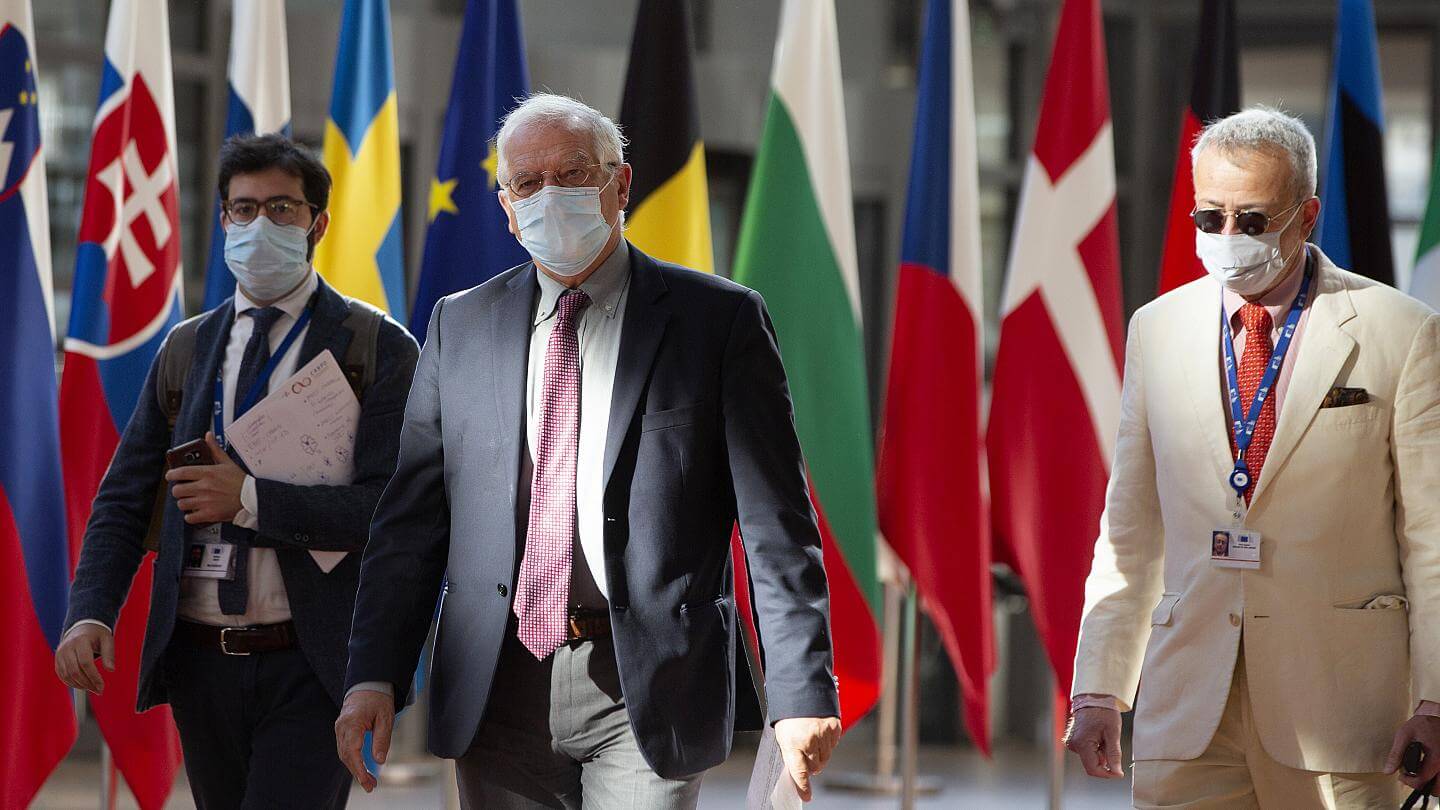At the first in-person meeting between the foreign ministers of the European Union (EU) since the COVID-19 outbreak, Turkey’s actions over the past few months were the central focus. There was broad consensus on discontent over two issues—the Hagia Sophia issue, and Ankara’s “unilateral” actions in the Eastern Mediterranean.
Also Read: Hagia Sophia: Museum, Mosque, or Erdoğan’s Political Tool?
Following the meeting, the EU’s Foreign Affairs Chief, Josep Borrell, expressed the unanimous condemnation of the “Turkish decision to convert such an emblematic monument as the Hagia Sophia” into a mosque. He said, “This decision will inevitably fuel the mistrust, promote renewed divisions between religious communities and undermine our efforts at dialogue and cooperation.” He also claimed that there existed a “broad consensus” amongst the foreign ministers of the EU to urge the Turkish government to re-evaluate and rescind its decision.
Further, Josep Borrell further spoke on the possibility of imposition of “punitive measures” for Turkey’s actions in the Eastern Mediterranean, which was motivated by two separate issues. The first is over Turkey’s decision to send vessels for gas exploration in an area, which is allegedly a violation of the “sovereign rights of Greece and Cyprus.”
Secondly, Josep Borrell expressed concerns over Turkey’s actions in Libya, which the EU believes violates the arms embargo in place, which was imposed to prevent the crisis from worsening. France and Tukey have been in a war of words over Turkey since early June. This was primarily instigated by an incident on June 10, when Turkish frigates, which were accompanied by a cargo ship, refused to be inspected by French frigates, who were working on the NATO Sea Guardian Operation. France claims that the cargo was involved in trafficking arms into Libya, while Turkey maintains that it was carrying medical supplies for humanitarian aid.
Libyan Conflict Coverage:
- Macron Accuses Turkey of Bearing Criminal Responsibility for its Actions in Libya
- Russian Mercenaries Evacuate Libya, US Accuses Moscow of Sending Warplanes to Haftar
- Libya Calls for US and EU Blockade on Russian Mercenaries as They Enter Oil Fields
- Turkey Threatens Retaliation against Haftar’s Forces in Libya as Tensions Escalate
- Libyan Rivals Set to Sign a Ceasefire Agreement in Moscow
- After Year-Long Offensive, UN-Recognized Government Regains Control of Libyan Capital
- Turkey Announces the Deployment of Troops to Libya
On June 29, speaking at a press conference, French President Emmanuel Macron, who was accompanied by German Chancellor Angela Merkel, said that Tukey bore “criminal responsibility” for its role in the conflict in Libya. He further said, “I consider that today Turkey doesn’t respect any of the commitments made at the Berlin conference, increased its military presence in Libya since then and massively reimported jihadist fighters from Syria.” Consequently, the French Armed Forces Ministry informed the North Atlantic Treaty Organization (NATO) of its decision to withdraw its presence from the Sea Guardian Operation in the Mediterranean. However, Turkey maintains that its activities are in support of the UN-supported government in Libya, and the EU’s actions are, in fact, hindering the peace process in the region.
Also Read: France Withdraws From NATO Operation Following Spat With Turkey
The foreign ministers also called for an action to be taken against China’s aggressive stance in Hong Kong. France and Germany, who were supported by Sweden, called for strict measures against China, including “extending the EU’s export ban on items that could be used for torture or repressive policing, like rubber bullets, giving activists long-term refugee status in the EU and allowing for more Hong Kong students to study in Europe”. Consequently, Josep Borrell said, “Our message in this context is twofold ... First to the people in Hong Kong, the support of the European Union for their autonomy and fundamental freedom. We will continue to stand by the people of Hong Kong. And to China, the message is that the recent actions change the rules, this will require a revision of our approach and will clearly have an impact on our relations.”
Image Source: Euronews

